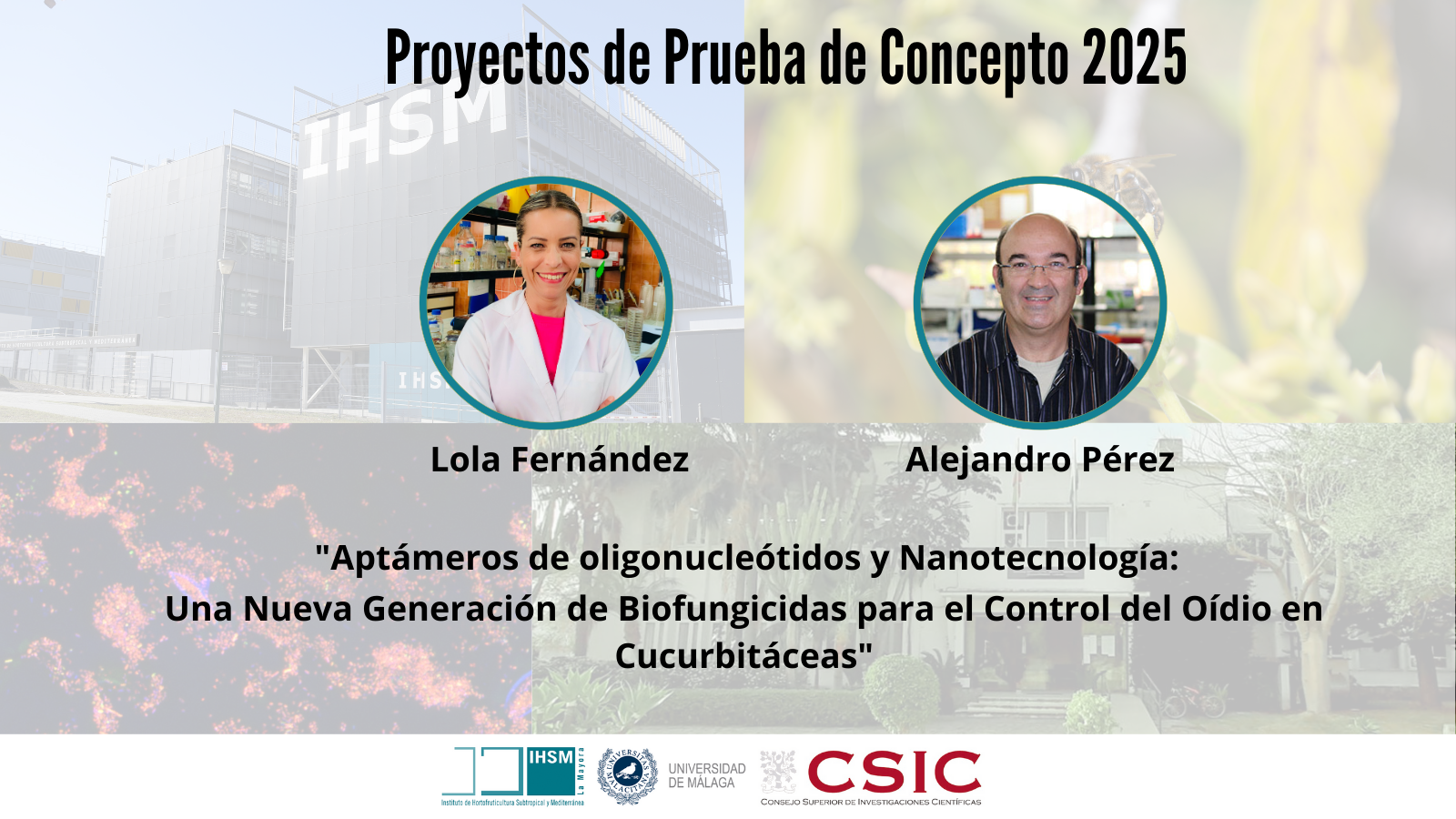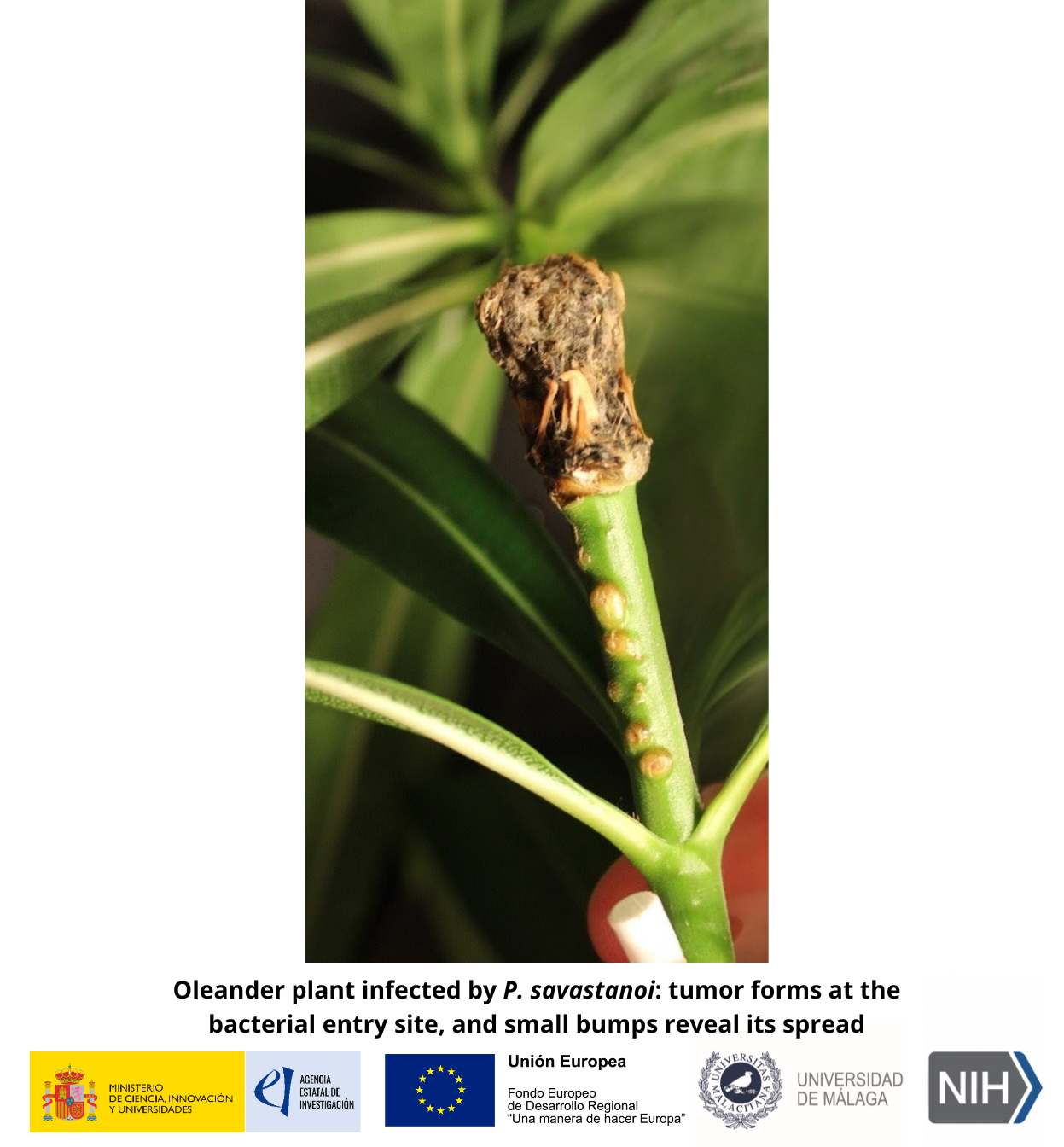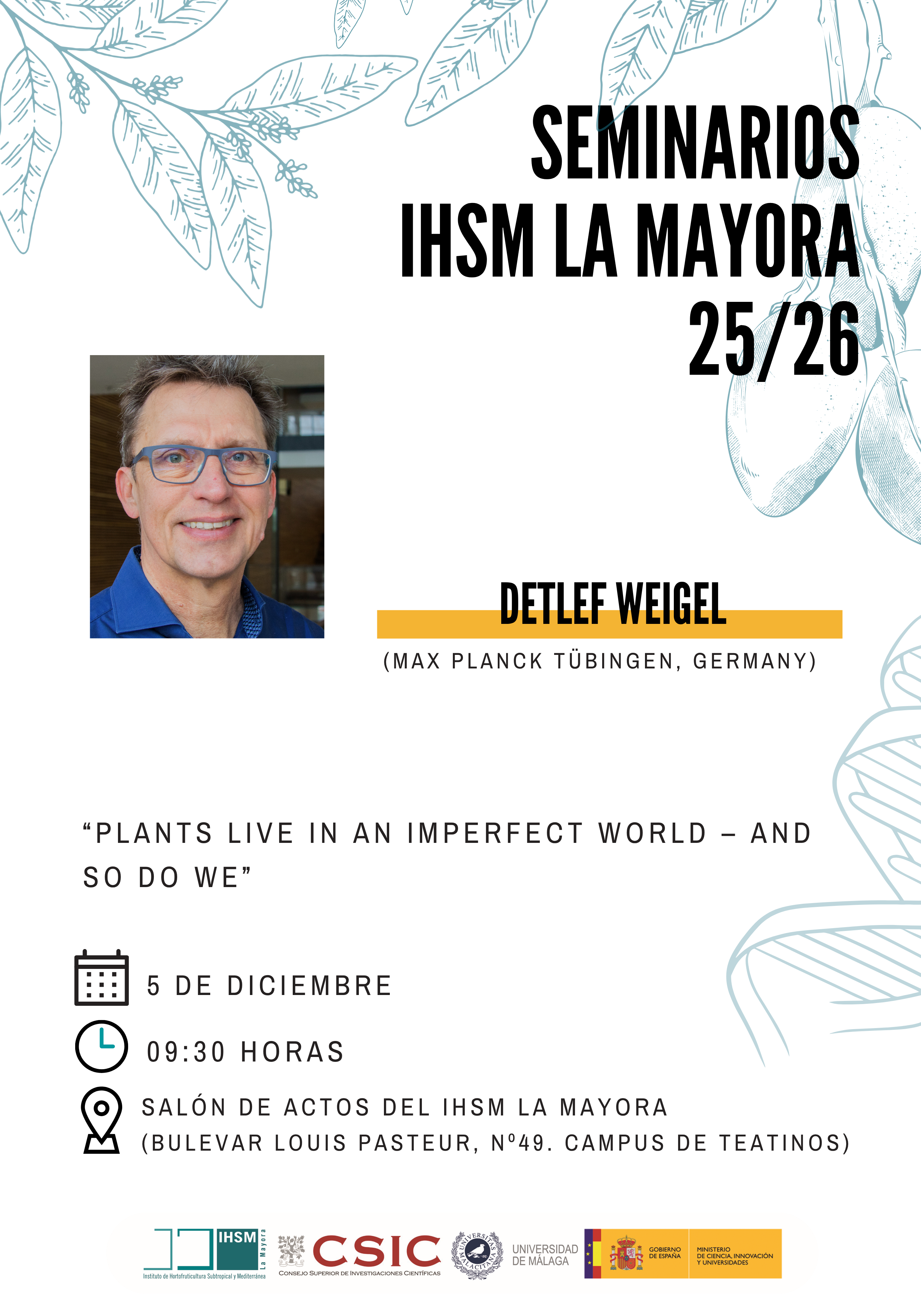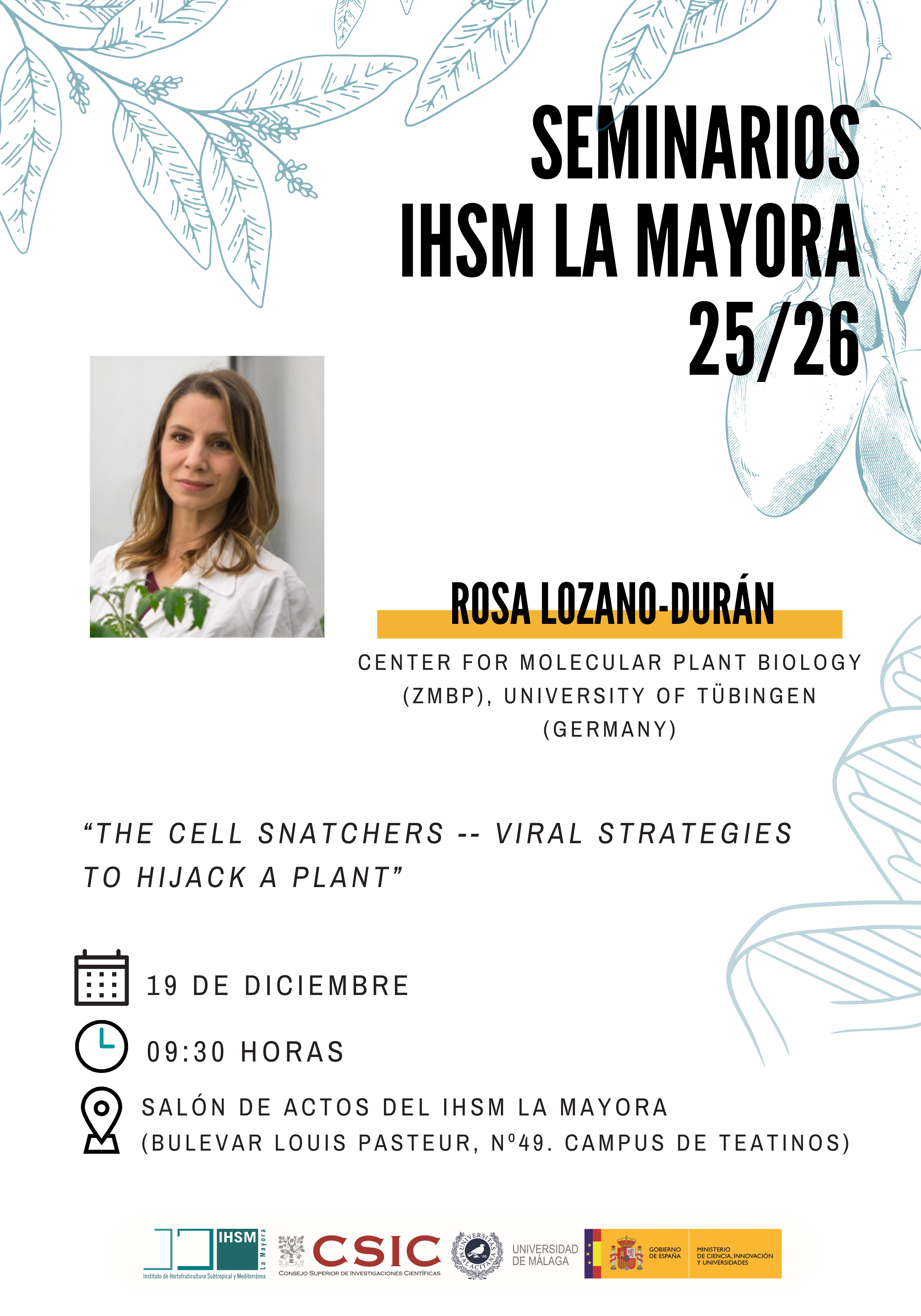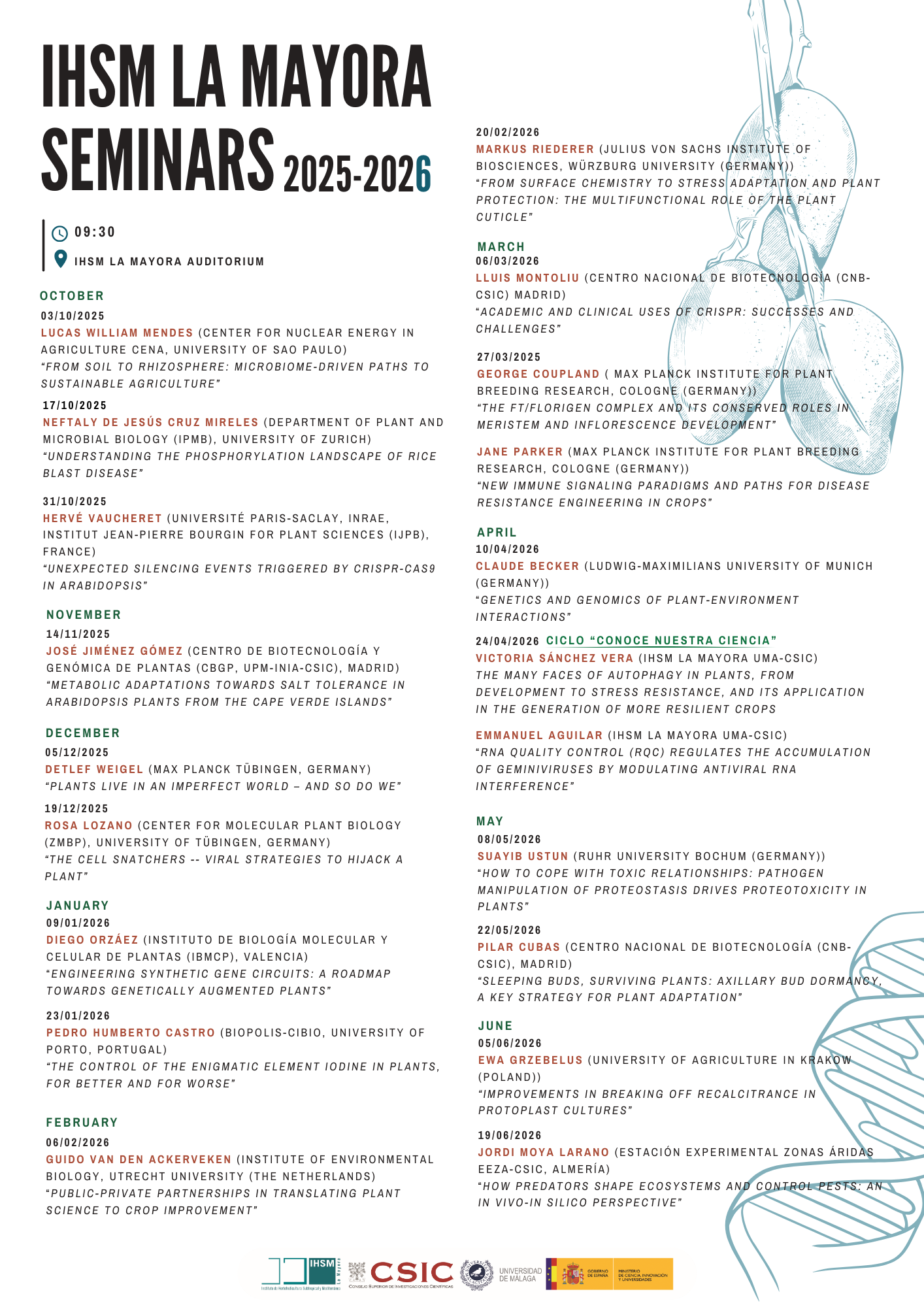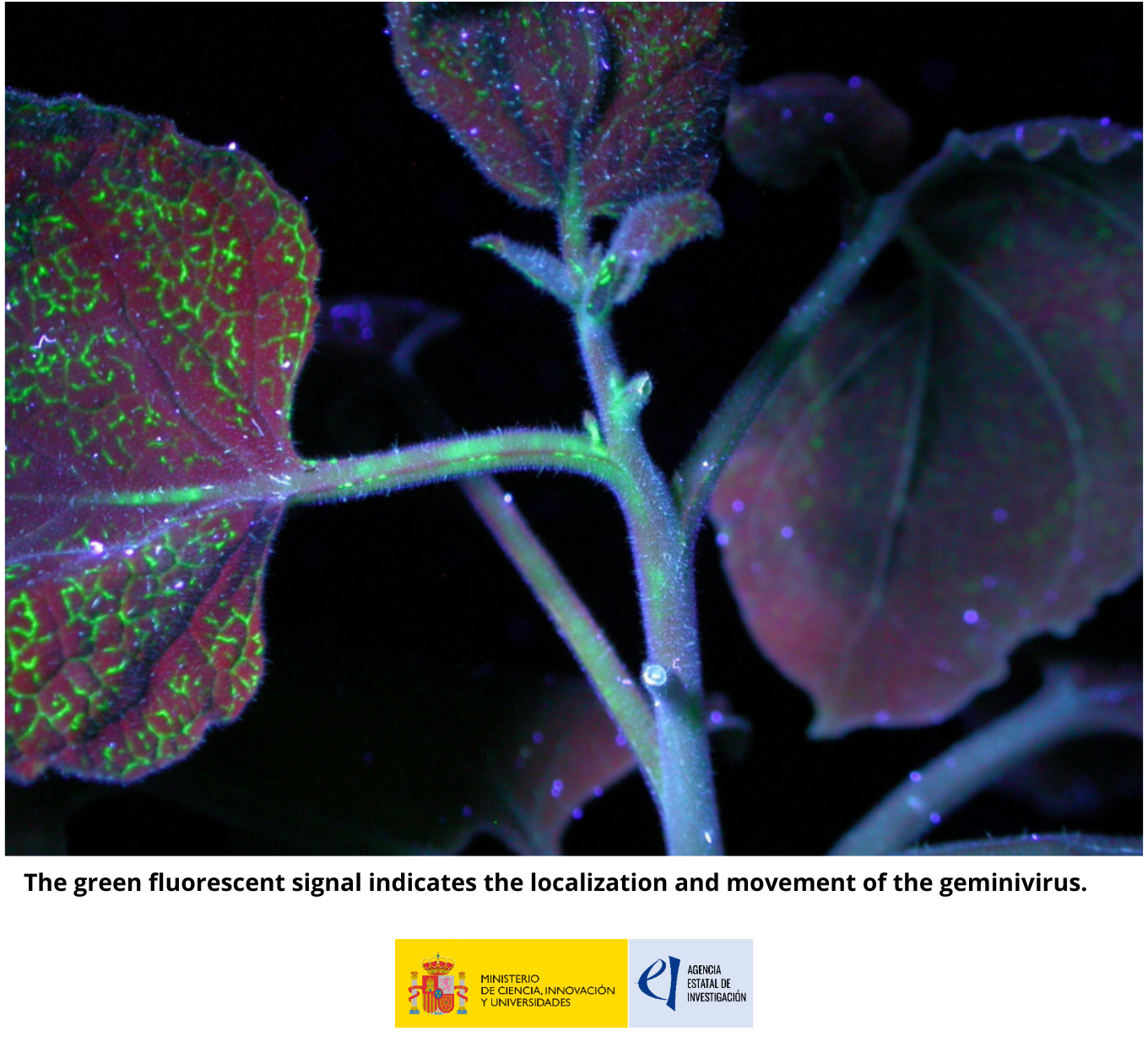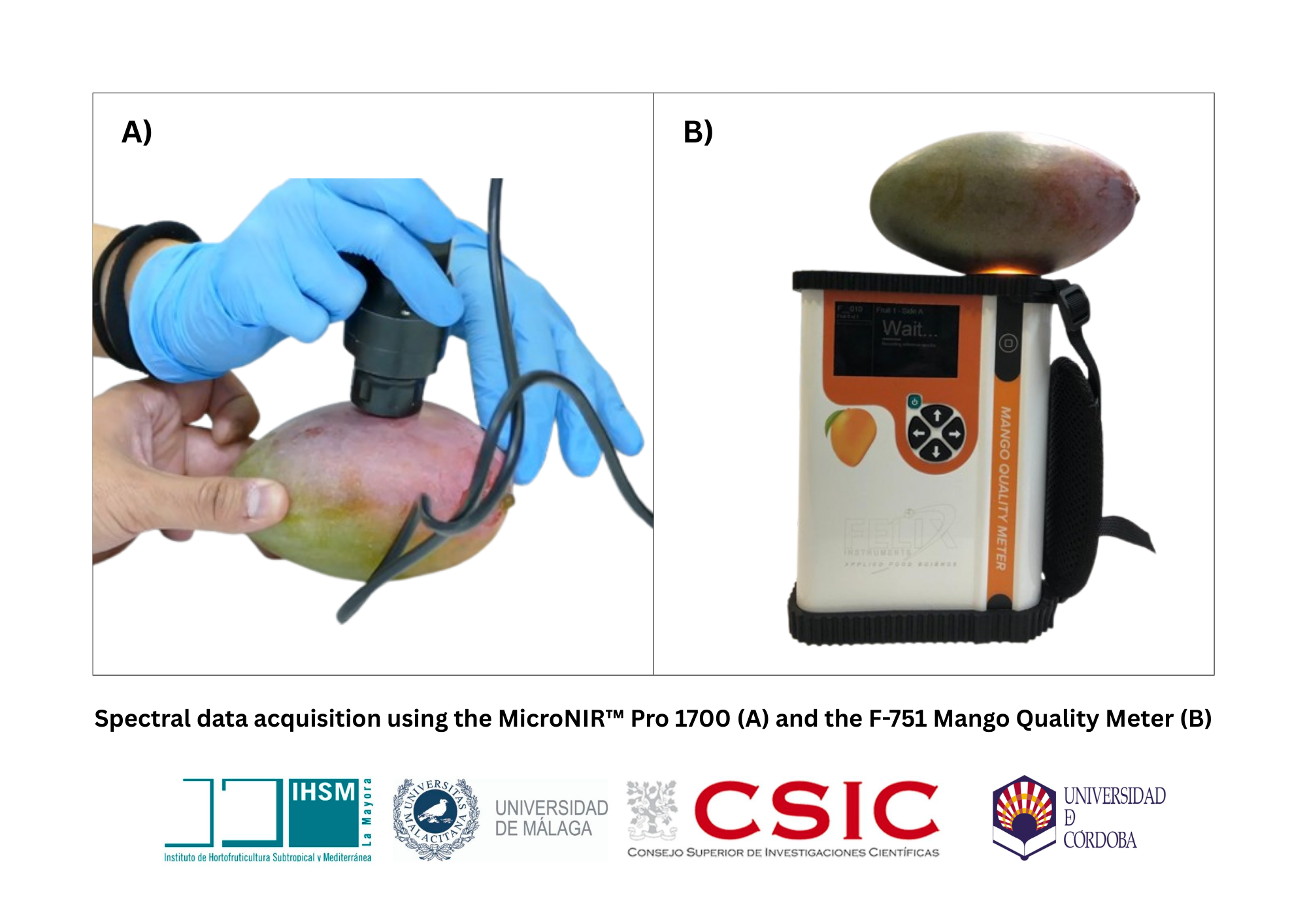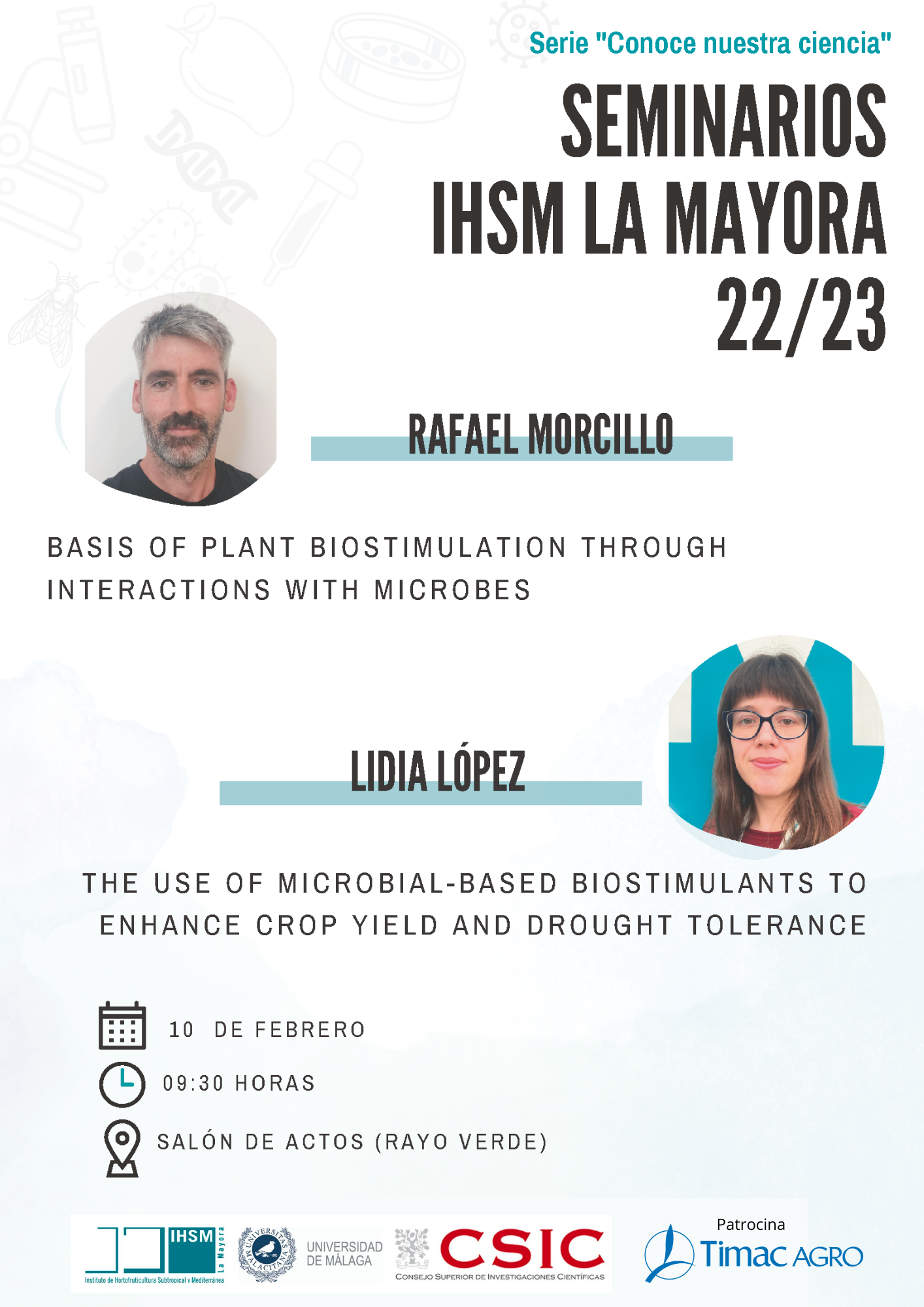
Seminarios IHSM La Mayora - Rafael Morcillo | Lidia López (IHSM La Mayora UMA-CSIC)
ABSTRACT OF RAFA MORCILLO In the pre-colonization phase, before direct contact with plants occurs, microorganisms emit volatile compounds (VCs) that promote plant growth and photosynthesis. These compounds also promote changes in root architecture that increase the exploratory capacity of the plant to capture water and nutrients. This capacity is not restricted to beneficial rhizosphere microorganisms, but also extends to pathogens and microbes that are not normally considered to interact mutualistically with plants. In our group, we are interested in investigating the molecular, biochemical and physiological bases involved in the response of plants to VCs emitted by phytopathogenic fungi. We have shown that VCs modulate some metabolic pathways of the primary metabolism that provide substrates for the synthesis of signal molecules that orchestrate changes in the expression of functions involved in plant growth and development. Here I will present recent breakthrough, yet still speculative ideas from our group, and preliminary results suggesting that microbial VCs hijack ABA and ethylene signaling pathways to guarantee high photosynthetic activity and growth, and enhanced root´s capacity to absorb nutrients and interact with the soil microbiota. BIOGRAPHY OF RAFA MORCILLO Dr. Rafael J. L. Morcillo graduated in Environmental Sciences from University of Granada in 2007. He completed his PhD thesis focused on the study of the role of plant hormones during the establishment of the arbuscular mycorrhizal symbiosis, under the supervision of Dr. José Manuel García Garrido at the Estación Experimental del Zaidín (Granada). Thereafter, he joined the laboratory of Dr. Huiming Zhang at the Shanghai Center for Plant Stress Biology (PSC; Chinese Academy of Sciences) as a postdoc to study the effect of microbial volatiles compounds in plant growth and health. In 2018, he joined the laboratory of Dr. Alberto Macho at PSC to investigate the molecular mechanisms governing infection processes of host plants by Ralstonia solanaceraum. In 2019, he returned to University of Granada (Spain) as postdoc to investigate the PGPR application to recover dry lands. Currently, he is working as a Senior Postdoc in The Institute for Mediterranean and Subtropical Horticulture "La Mayora" (Málaga) at Dr. Javier Pozueta Romero´s lab to establish a new research line aimed at identifying novel microbial-based biostimulants and characterizing their biochemical and molecular action mechanisms ABSTRACT OF LIDIA LÓPEZ Drought is by far the leading environmental stress caused by global warming which limits crop production. Drought is predicted to severely reduce yield and quality of important horticultural species such as tomato. Therefore, it is mandatory to stablish strategies for a sustainable and eco-friendly agriculture aimed at enhancing crop yield, drought tolerance and water and nutrient use efficiency, while reducing the negative impact of agrochemicals on the environment; potential solutions may be fostered by biostimulants, which are defined by the European Biostimulant Industry Council as “substances and/or microorganisms whose function when applied to plants or to soil is to stimulate natural processes to enhance or benefit nutrient uptake, nutrient efficiency, tolerance to abiotic stress and crop quality”. We are currently investigating whether the use of novel microbial-based biostimulants may improve tomato drought tolerance and production. To reach this objective, we have analysed the effect of our biostimulants on fruit yield and drought tolerance tomato plants cultured in greenhouses under optimal and drought conditions. We have also measured a series of biochemical parameters in leaves and fruits to obtain insights on the action mechanisms of application of our biostimulants. Here I will present recent advances on the use of microbial-based biostimulants to enhance fruit yield and drought tolerance BIOGRAPHY OF LIDIA LÓPEZ Dr. Lidia López Serrano graduated in Biology in Málaga University in 2013. In 2014, she started her specialization in plant ecophysiology in the Valencian Institute of Agricultural Research (IVIA, Valencia). There, she focused her research on characterizing traditional horticultural varieties of interest in the Valencian Region and improving the availability of pepper rootstocks tolerant to water and salt stresses. In 2016 she started her PhD thesis in the same research institute, where she studied the agronomic, physiological and molecular mechanisms of tolerance of pepper grafted plants subjected to water or salt stresses. In 2021 she moved to IHSM to investigate how to improve tolerance to abiotic stresses by using microbial-based biostimulants.

